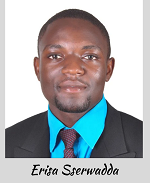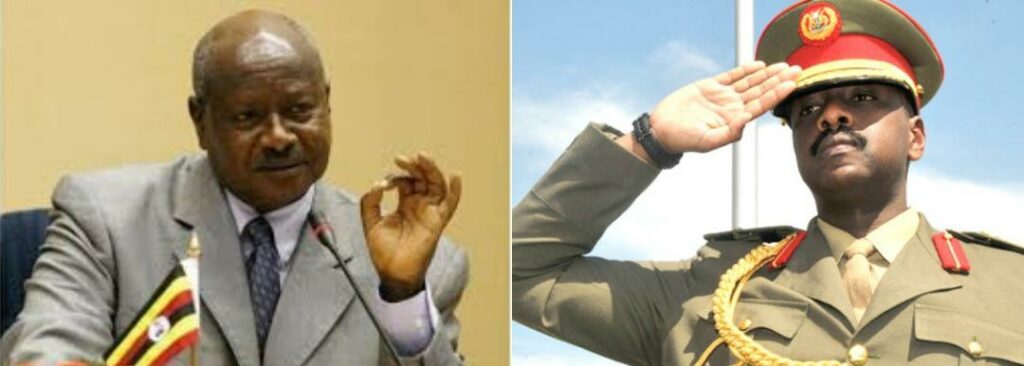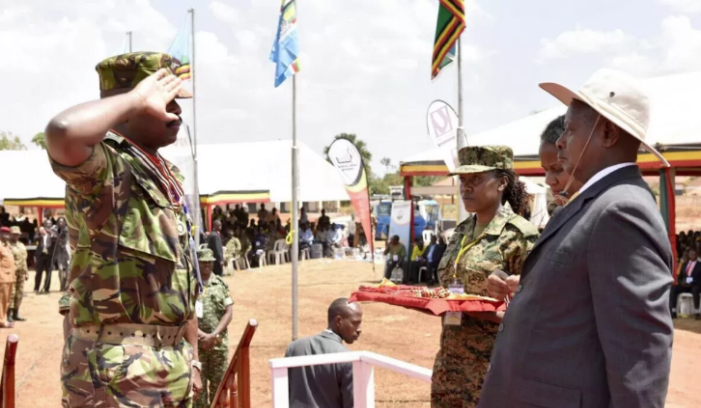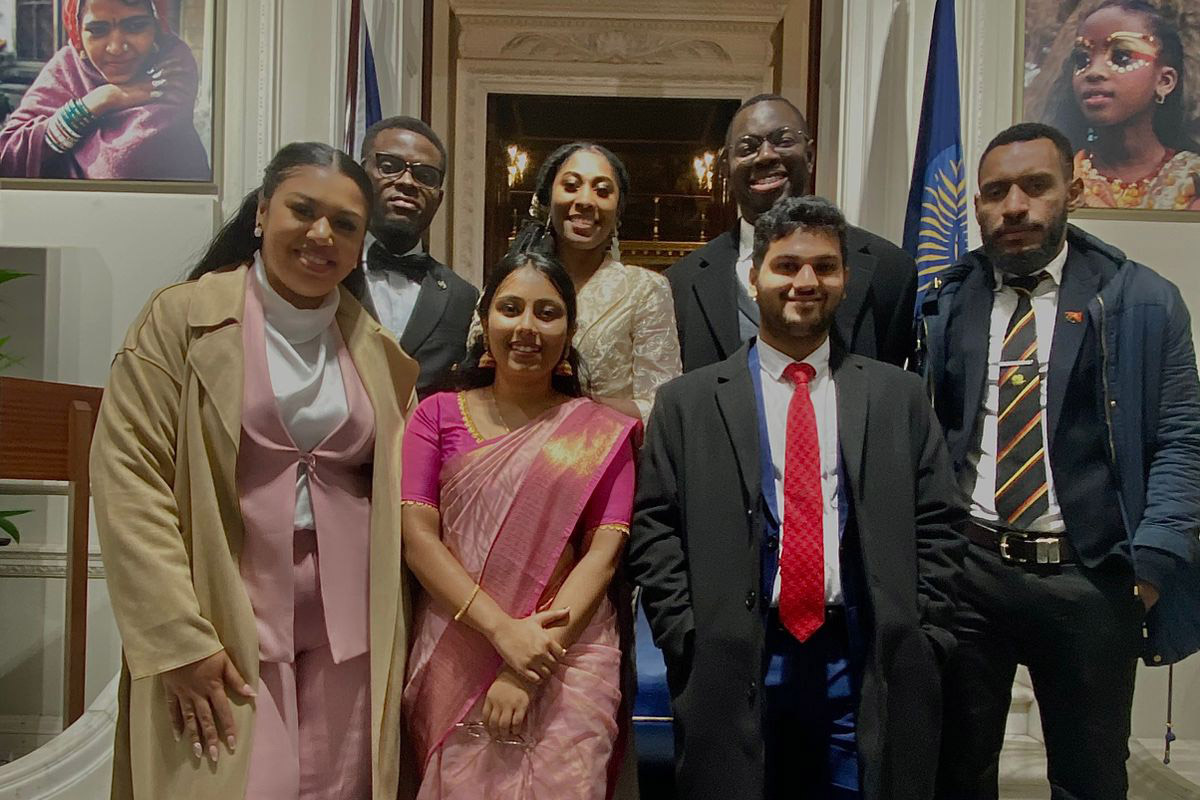Is Uganda’s president grooming his son to take over?
July 8
It should not take us by surprise if Uganda’s president, Yoweri Kaguta Museveni who has ruled the country for over 35 years is succeeded by his son, General Muhoozi Kainerugaba, writes Erisa Sserwadda, a 25-year-old Commonwealth Correspondent from Uganda. Until recently, Museveni’s eldest son has kept a relatively low profile on the political scene. Most Ugandans knew little about Muhoozi Kainerugaba, who spent most of his youth abroad. Erisa argues that the signs are clear that the president’s eldest son is being groomed for the presidency.
Social media is increasingly being flooded with images of the first son of Uganda’s 76-year-old president and slogans like “Muhoozi Project” are being used to apparently gather support from the public for President Museveni’s son. Meanwhile, regime bloggers, loyalists, and die-hard supporters of Musevenism have started calling for General Muhoozi’s candidacy.
Who is Muhoozi Kainerugaba?
Muhoozi Kainerugaba was born in 1974 in Dar es Salaam, Tanzania. He attended school in Tanzania, Kenya and Sweden while his father was still fighting the Idi Amin and the Milton Obote regimes. When his father became the country’s president in 1986, Muhoozi returned to Uganda to continue his education. After leaving high school he started military training. He attended the University of Nottingham in the UK and subsequently joined the Uganda Peoples Defense Forces (UPDF) and has rapidly moved up the ranks over the years.
Shortly after his father won the presidential election in 2016, Muhoozi Kainerugaba was promoted to the rank of Major General. A year later his father appointed him Special Presidential Adviser for Special Operations, then in 2019 he was appointed Lieutenant General and in 2020 was promoted to Commander of Special Forces Command (SFC), an elite military group that guards President Museveni. Just last month, General Muhoozi was appointed as Commander Land Forces in the Uganda Peoples Defense Forces (UPDF).
I am among those observers who see these appointments as stepping stones which the president has laid for his son to progress to the topmost office in the country.

What both father and son are saying about General Muhoozi being a possible successor
Appearing on Uganda Broadcasting Centre television in 2017, Muhoozi declined to comment on the likelihood that he will pursue the presidency in the future. A critical analysis of his promotions over the years however, suggests that he will.
In an interview with Al-Jazeera that same year, his father said the question of whether his son will succeed him can only be answered by ‘Muhoozi and the people of Uganda’, adding that ‘it is not in the short run.’
The president also noted that anyone interested in the presidency would be expected to respect the constitution, which he said stipulates that a president of Uganda must be elected by the citizens in a popular vote under universal adult suffrage.
Unfortunately, in many cases, the constitution has been controversially amended to serve the interests of President Museveni. The recent amendments include the change of term limits in 2005 to allow Museveni to stand for the presidency in 2006 and beyond. Another amendment was the 2017 removal of the age limit that allowed President Museveni to contest the 2021 general elections. We can therefore fairly conclude that the president’s reference to the constitution is a hoax since Museveni has repeatedly altered the constitution at critical times to serve his personal agenda.
The bigger picture of father-to-son succession in African politics
My assertion that the president is grooming his son for office is also supported by Africa’s political history. It is not uncommon for presidents in Africa to prepare their sons for political leadership. In Gabon, the current president Ali Bongo succeeded his father, Omar Bongo Ondimba. His grooming included being handed a cabinet position. In Equatorial Guinea, Teodorin Nguema Obiang is a possible successor to his father, President Teodoro Obiang Nguema, who is currently Africa’s longest-serving president. He assumed office in August 1979. Notably, in 2016, President Nguema promoted his son Teodorin to the position of Vice President in charge of defence and security.
The late Libyan leader Muammar Gaddafi and his son Saif al-Islam Gaddafi had their story of glooming cut short when the father was killed in an insurgency. There are also several examples of sons who have followed their father’s footsteps to occupy their countries highest office. These include Joseph Kabila in the Democratic Republic of Congo, Faure Gnassingbé of Togo and Kenya’s Uhuru Kenyatta.
Given these facts, it is, therefore, my assessment that President Museveni’s son Muhoozi Kainerugaba is being groomed to succeed his father as president of Uganda. This should not take us by surprise as it is not the first time that a president has groomed his son for office in Africa.
What this father to son transfer of power will mean for a poor country like Uganda, is an urgent concern that my next article will address.
In the meantime, many Ugandans continue to decry the rule of President Yoweri Museveni who in January’s election secured for himself five more years. Amidst claims of vote-rigging by his main challenger Robert Kyagulanyi Ssentamu (Bobi Wine), this win will extend the controversial rule of President Yoweri Museveni to 40 years when his term ends in 2026. What should Ugandans expect in 2026?
………………………………………………………………………………………………………………………………………………………………..
Photo Credits: Entebbe News, Chano8, Face2faceafrica
…………………………………………………………………………………………………………………………………………………………………
About Erisa Sserwadda: He is a graduate student pursuing a masters degree in Governance and Public Policy in Germany. He aspires to challenge young people in Uganda and Africa at large to directly or indirectly engage in programmes that are of value to society. He is a global activist on human rights issues and has a passion for writing. He has authored several scholarly articles and papers on different topics with various media and publication houses. Twitter @elishameds






